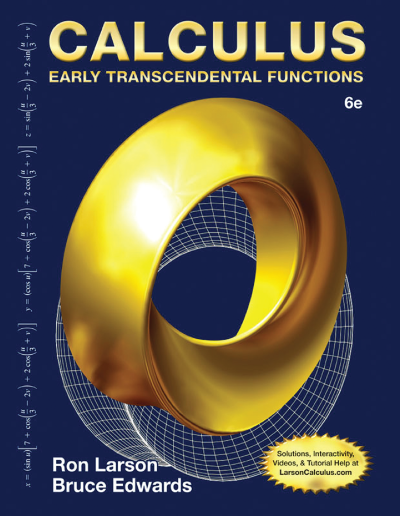John Wallis
(1616 – 1703)
John Wallis is generally considered to have been the most influential English mathematician to precede Newton. Wallis’s discoveries advanced his era’s two most significant branches of mathematics, analytic geometry and infinite analysis. He was among those who coaxed British universities out of the Middle Ages, during which mathematics was regarded as an instrument of Satan, and persuaded Cambridge and Oxford to include mathematics in their curriculum. Wallis is also credited with important contributions to medicine, theology, and linguistics.
Wallis, the third of five children, was born on December 3, 1616, in Ashford, Kent, in England. His father, also named John, was a minister held in high esteem by his parish. Unfortunately, Pastor Wallis died when his son was only six years old.
Despite the loss of her husband, young John’s mother was determined to procure an education for her children. By the time he entered Emmanuel College at Cambridge University in 1632, John was thoroughly conversant with Latin, Greek, and logic, and had a smattering of Hebrew and mathematics.
Wallis’s first ambition was to be a doctor. Accordingly, he studied physics and anatomy, and successfully defended William Harvey’s theories of the function of the heart and the circulation of the blood. Wallis’s oral dissertation is believed to have been the first public presentation of Harvey’s revolutionary discoveries.
Next, Wallis chose to study theology in preparation for the ministry, and was ordained in 1640. Wallis found a post in London as a private chaplain and lived uneventfully until 1642, when Parliament revolted against England’s Charles I. Soon thereafter, Wallis was shown some Royalist letters captured by Cromwell’s forces. The letters were in code; Wallis discovered, to his surprise, that he was able to decipher the letters with relative ease. From that point until the end of the war, Wallis was much in demand as a cryptographer.
In 1649, in recognition of his service to the revolution, Parliament appointed Wallis the Savilian professor of geometry at Oxford. In mathematics, apparently, Wallis found his true calling, for he served at Oxford with distinction until his death fifty-four years later. He had long been interested in mathematics, and was a central figure in the mathematical discussion group that would come to be known as the Royal Society of London. Soon, Wallis was acknowledged as one of the most influential and innovative mathematicians in all of England.
Wallis wrote a number of treatises, but most important was his Arithmetica infinitorum, published in 1655. Though criticized for its lack of rigor, the Arithmetic of Infinities shows true intuitive genius. To arithmetize the works of Descartes and Cavalieri, Wallis devised a method of interpolation that enabled him to express irrational numbers in terms of infinite series. The Arithmetic of Infinities also has the distinction of having inspired Newton’s discovery of the binomial theorem.
Another of Wallis’s many interests was linguistics. In 1661, he taught two deaf-mutes to speak. Wallis was among the first to attempt such instruction, and the first to succeed. He laid the theoretical foundation of his innovative approach in his De loquela, or Treatise of Speech, first published in 1652.
Although Wallis’s brilliance and creativity is undisputed, he was by no means admirable in every respect. Cursed with a quick temper and a tendency towards irrational resentment, Wallis frequently found himself embroiled in bitter, violent controversy. He also had an unfortunate talent for creating quarrels between others. One example is the infamous battle between Leibniz and Newton, sparked when Wallis inaccurately suggested to Newton that Leibniz had plagiarized Newton’s invention of the calculus. Until Wallis interjected his slanderous innuendos, Leibniz and Newton had been good friends and mutual admirers. Wallis was so successful in poisoning their relationship that Newton thought of virtually nothing for the rest of his life but destroying Leibniz’s reputation.
Wallis never missed an opportunity to boast of his achievements, but was often reluctant to acknowledge the scientists whose work inspired his own. Nevertheless, Wallis was an exceptionally gifted man whose discoveries ushered in a new era of mathematical achievement. As the epitaph engraved on his burial stone proclaims, “. . . he left immortal works.” Wallis died at eighty-six years of age on November 8, 1703, in Oxford, England.
Links
http://www-history.mcs.st-andrews.ac.uk/Biographies/Wallis.html
http://www.maths.tcd.ie/pub/HistMath/People/Wallis/RouseBall/RB_Wallis.html
References
- Boyer, Carl B. A History of Mathematics. 2d ed., rev. Uta C. Merzbach. New York: John Wiley & Sons, Inc., 1991.
- Eves, Howard. An Introduction to the History of Mathematics. 6th ed. Fort Worth: Saunders College Publishing, 1992.
- Gillispie, Charles Coulston, ed. Dictionary of Scientific Biography. Vol. XIV. New York: Charles Scribner’s Sons, 1976.
- Gillispie, Charles Coulston, ed. Dictionary of Scientific Biography. Vol. XIV. New York: Charles Scribner’s Sons, 1976.
- Kline, Morris. Mathematical Thought from Ancient to Modern Times. Vol. I. New York: Oxford University Press, 1972.
- Simmons, George F. Calculus Gems: Brief Lives and Memorable Mathematics. New York: McGraw-Hill, Inc., 1992.
- Struik, Dirk J. A Concise History of Mathematics. New York: Dover Publications, Inc., 1987.











